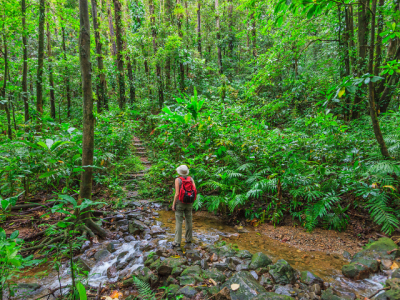
In a case with widespread municipal importance, two Tunbridge landowners are seeking a declaratory judgment in the Orange County Superior Court that they, rather than the town, hold the legal authority to determine whether and how to build, maintain, and repair the legal municipal trail located on their property. Legal trails are defined as a “public right of way that is not a highway and that (A) previously was a designated town highway having the same width as the designated town highway, or a lesser width if so designated; or (B) a new public right-of-way laid out as a trail by the selectmen for the purpose of providing access to abutting properties or for recreational use.” 19 V.S.A. § 301(8). Up until this point, it has been the uncontested conventional legal wisdom that selectboards have the exclusive authority to maintain the legal trails they are explicitly authorized to regulate.
If the complainants are successful, selectboards will lose all authority to manage the physical state of their legal trails. This would undoubtedly impact most member municipalities, each of which has an average of at least two miles of legal trails. In total, there are 547 miles of legal trails in Vermont – see the Vermont Agency of Transportation General Statistics.
Although towns vary in their use of trails, recreational uses are becoming more common. With such increased use comes incumbent maintenance and repair requirements. A negative result in this case then could cause lost recreational opportunities if landowners defer or prevent maintenance of trails passing through their properties. This case comes precisely as municipalities are seeking more options to increase their local recreational opportunities. Without the discretionary authority to manage their trails systems to desired standards, municipalities would indirectly lose their explicit authority to regulate the use of trails for hiking, cross-country skiing, biking, or ATV use. VLCT joins the Town of Tunbridge in support of their argument that you can’t have one without the other.
At this point Tunbridge and their municipal attorney are vigorously defending their authority to maintain their legal trails at the superior court. The VLCT Board of Directors heard from the attorney in September, and voted to help gather information that could help Tunbridge prevail. Should the case reach the Vermont Supreme Court, the VLCT Board would consider sending an amicus curae brief in support of the town.
Kail Romanoff, VLCT MAC Attorney I